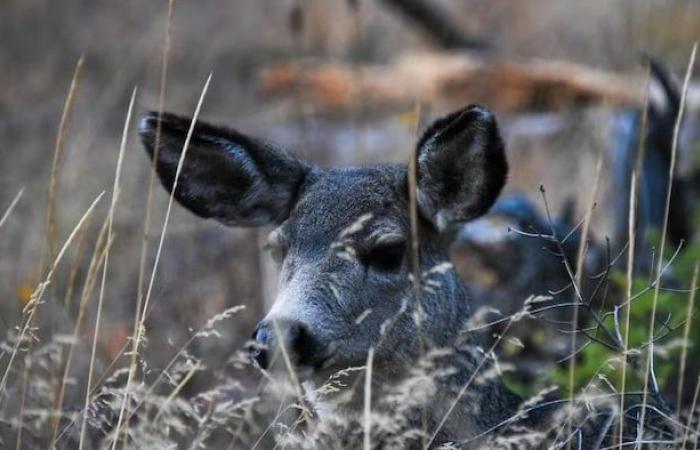British Columbia hunters should be wary of chronic wasting disease (CWD) in deer after confirmation of a fourth case found in a deer in the Kootenay region, the Ministry of Water Stewardship said Tuesday , land and resources.
Nicknamed zombie deer disease, MDC is an incurable disease that affects members of the deer family, such as moose, caribou and elk. Symptoms of the disease in animals include weight loss, drooling, poor coordination and stumbling.
The province announced a third case earlier this month, after two cases were confirmed earlier this year, the first discovered in British Columbia.
Monitoring is essential
In the Thompson area, the Skeetchestn Natural Resources Society asks hunters to drop off the heads of harvested deer for testing.
The society’s Shaun Freeman says no cases of CWD have been reported in the Thompson area, but people need to be vigilant. The company says early detection is key because the disease is almost impossible to eradicate once it becomes established.
Open in full screen mode
Chronic wasting disease can lead to the death of cervids like mule deer, pictured here.
Photo: Photo provided by Kathleen Orcutt
We’re trying to get ahead. Monitoring is essential. We are doing our best to try to identify it as soon as it appears.
Hunters from other regions of the province are invited to drop off samples at one of the many drop-off locations in the province. (New window) (in English).
The Kootenay and Peace regions are target areas for testing, according to the province, as they are higher risk.
People who do not have a drop-off location in their area can contact the BC Wildlife Health Program.
The ministry says more than 3,000 samples have been taken in the Kootenay region and there have been only four cases of MDCwhich indicates a low prevalence of disease
.
Restrictions were also placed on transporting parts of deer, elk or moose outside of the 14 wildlife management units.
Call for slaughter
Following this fourth confirmation of CWDthe BC Wildlife Federation is calling for rigorous testing and culling of deer in the Kootenay region.
Deer in the towns of Cranbrook, Creston and Kimberley are considered high-risk carriers and spreaders of the disease.
Although there is no evidence that CWD affects humans, Health Canada recommends against eating meat from infected animals. The province is encouraging residents to report signs of the disease in wild animals.
With information from Corey Bullock, Andrew Kurjata and The Canadian Press






